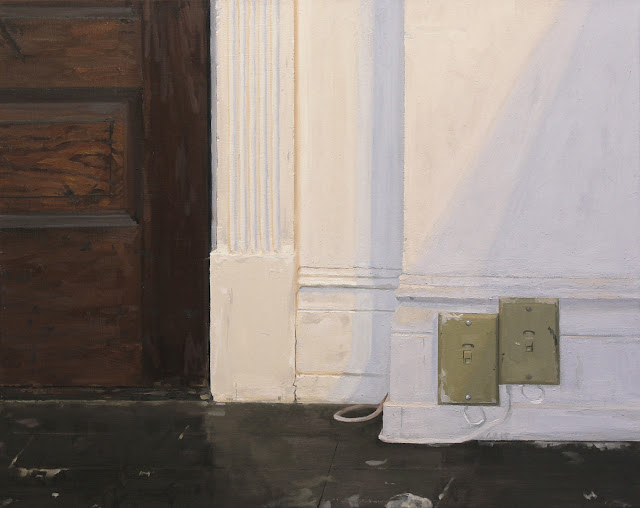Leap Year
2016, oil on canvas, 24x18"
All photos courtesy of Joseph Holsapple
I'm thrilled to have a piece included in Thinking Through Things: A Still Life Invitational exhibition curated by one of my favorite contemporary painters,
Joseph Holsapple. The show runs February 10-March 6 at Nicholls State University in Thibodaux, LA; it will then move to Southside Gallery in Oxford, MS where it will run from April 27-May 20.
I'm truly honored to be included among so many painters who I have admired for years. This is great company to keep!
Participating artists:
Joe Morzuch, Neil Callander, Erin Raedeke, Sara Pedigo, Edmond Praybe, Amy Scherer, Christina Renfer Vogel, Samantha Haring, Aubrey Levinthal, Tim Kennedy, Eve Mansdorf, Philip R Jackson, Tom Walton, and Joseph Holsapple.
Below is the thoughtful and eloquent curator's statement written by Joseph Holsapple. Enjoy -
“To think through things: that is the still life painter’s work.” --Mark Doty
Still life painters frequently turn their attention to the mundane and
commonplace objects that populate our daily lives. These objects are at once close
at hand and so often overlooked as to be nearly invisible. Their nearness and
ubiquity is precisely what hides them from our sight, and the act of attending to
them draws us closer to the immediate world around us. Still life painting is often
about the act of looking (or, rather, the countless acts of looking that occur
throughout the process of painting), and at its root is an attempt to inhabit our
world more fully.
As a genre, still life is clearly attuned to the physicality and specificity of things,
yet these things inevitably turn our attention away from themselves and towards
the very act by which we see them. The poet Mark Doty writes that the work of
the still life painter is to, “think through things.” Notably, he did not write “about
them,” for at least as important as what we see is how we see it. The objects in a
still life beckon us to slow down, and seem to offer themselves for our silent
contemplation. Ultimately, to slow down the act of looking is to slow down our
experience of time, as we are held suspended in a moment of visual arrest. The
cups, shoes, and cans depicted in a still life serve as ballasts that stabilize our
vision and reawaken our own awareness of ourselves as physical and temporal
beings.
The end result is that the visible and tangible world, so often experienced at a
blurred remove in our daily lives, is once again brought into focus. Still life
painting offers a renewed immediacy: the intimacy of touch and prolonged sight
are fused together in a surface of paint, and we are drawn near.
Each of the artists invited to participate in this show is remarkable for how they
use still life to speak to these basic human experiences. Their work demonstrates
the vitality and continuing relevance of still life, and I am proud, and humbled, to
hang my work next to theirs.

























